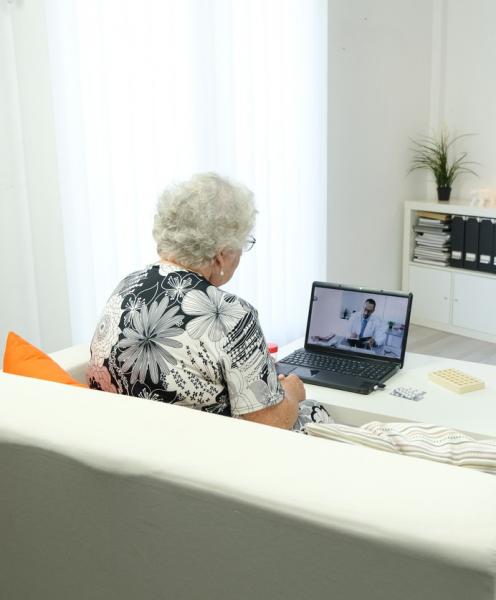
With an aging population, Maine seniors have borne the brunt of the COVID-19 pandemic. Our seniors often have many medical diagnoses and issues, and go to doctor’s visits frequently. Since March last year, they’ve had to put themselves at risk for COVID-19 infection or miss vital appointments. In a typical year, many Maine seniors are forced to drive several hours across the state for specialized appointments at hospitals in Portland or Bangor. Not only is this a time and cost burden for our seniors, but it also discourages them from seeing their providers regularly. The added risk of disease has exacerbated the issue, resulting in Mainers delaying treatments and diagnoses.
Telemedicine was rarely used in doctor’s offices before the pandemic, but now it’s an everyday occurrence. Although there is a lot of attention in Augusta and Washington about internet access, particularly in rural areas, many seniors lack devices to even access the internet, let alone telemedicine. Telemedicine typically uses apps that must be installed on smart devices, with touch screens and front cameras; many older and less-expensive phones lack these features. The missing link for Maine seniors to access healthcare during the pandemic is access to devices that support telemedicine.
In March 2020, we founded TeleHealth Access for Seniors, an entirely student-led organization. We provide seniors and low-income communities with devices, instructions, and free tech-support so that they can connect with their physicians via telehealth. The devices also allow seniors to stay in touch with friends and family.
Our Maine partner clinics include the Togus VA, Cary Medical Center, and Northern Light A.R. Gould Hospital. We provide devices to these clinics, and their staff ensure that phones, tablets and laptops get to the patients who need them most. After our drop-offs, the patients aren’t left to their own devices. Every drop-off also includes copies of our tech guides, which help seniors learn how to set up their devices and how to use them for telehealth. There’s also a tech support team giving seniors access to tech support via phone if more help is needed beyond the guides. Both the tech guides and tech support are available in multiple languages.
This spring, as the weather warms up and vaccine rollout accelerates, spring cleaning is on the minds of many. Sometimes, old electronic devices go unused after being upgraded over the holidays. Or, devices may have small cracks or scratches but are otherwise functional. These devices could make a real difference in the lives of senior citizens across the state through telemedicine, saving time, reducing costs and potentially saving lives.
Telemedicine will persist past the pandemic — especially in Maine. The challenges rural communities face in getting health care, without a doubt, have grown during the pandemic, but they have always been there. It will fall to policymakers, health care providers and engaged people from all across the state to build a system that reduces urban-rural disparities, taking full advantage of telemedicine. In the meantime, however, we can all do our part by donating spare devices and money to supporting the growth of telemedicine across the state.